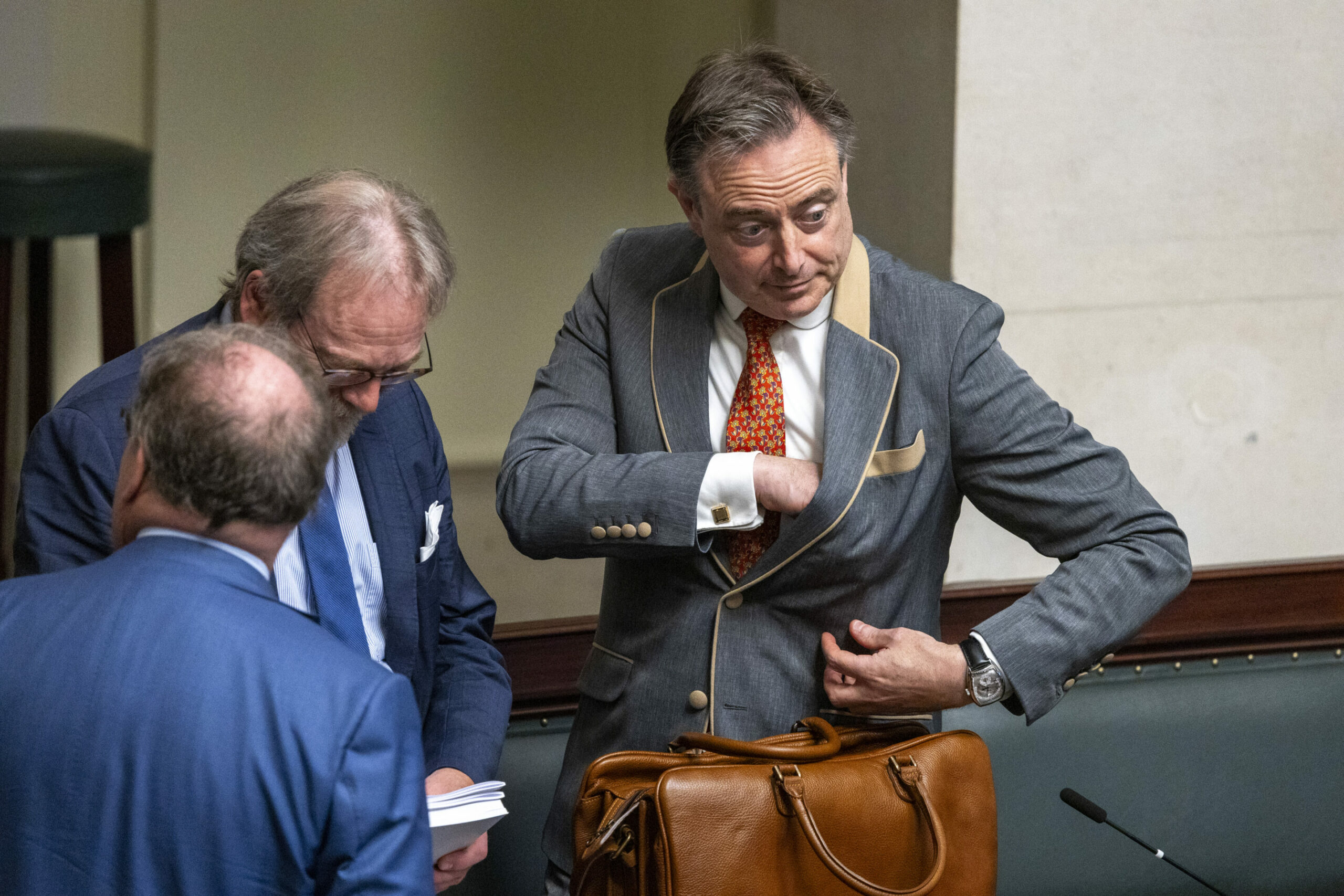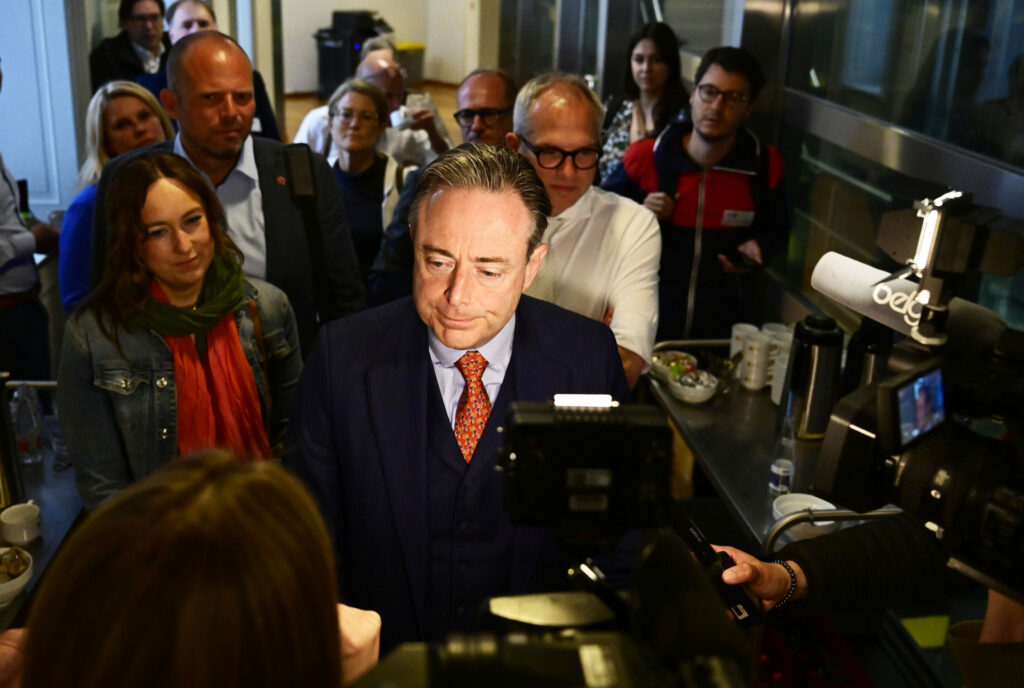The incoming Federal Government faces a mammoth task to overhaul Belgium's "money from the sky" approach to public spending, but a proposed plan to cut income taxes could pay off in the long run, according to a UCLouvain economist.
After a week-long break, talks to form Belgium's Federal Government resumed on Monday, as 'formator' Bart De Wever (N-VA) is set to table proposals to make work more profitable.
Before the "family week" break, De Wever convened the five intended coalition parties (N-VA, Vooruit, CD&V, MR and Les Engagés), and the key negotiators to consider his so-called "super note" on how he plans to reform the labour market, taxation and pensions.
Some details of this super note were leaked to Belgian news outlets last week, and as reported by L'Echo, De Wever has pitched several proposals to coalition parties as to how a "higher net salary" can be achieved for workers.
His proposals aim to make it less financially attractive for Belgians to not work, eradicating "employment traps" which create a net financial loss for people who return to work and lose their State benefits.
Last month, Belgium's expert council on employment called for a clamp down on "unlimited" unemployment benefits, as the State grapples with one of the lowest employment rates in the EU combined with acute labour shortages.
De Wever's proposals
Belgium currently has four tax brackets, with a rate of 25% applying to the lowest bracket, and a rate of up to 50% for the highest earners. In July, the outgoing government failed to reach an agreement on reform of these tax brackets.
Now De Wever proposes raising the threshold for the highest tax rate of 50%, from the current level of €48,320. He also suggests that those in the second lowest tax bracket of 40% should benefit from a reduced 35% tax rate, and the lowest 25% tax bracket should be widened so that "all small employees see their net remuneration increase".
The note suggests that the amount of non-taxable income for workers (€10,570 in 2024) could be raised to the level of "integration income" (a State support for people who cannot earn an adequate income themselves, such as some jobseekers or people with disabilities), which currently sits at €15,460 for a single person.
De Wever has also outlined plans to adjust Belgium's automatic indexation system so that net instead of gross wages will be indexed in times of high inflation.
Among a host of other reforms included in the super note are the removal of the €12,000 earning cap for flexi-jobs, making creche fees tax deductible, and merging current VAT rates of 6% and 12% to one unified rate of 9%.
Pressure on Belgium's purse strings
The big question is how Belgium's already stretched budget will be able to accommodate these changes, as well as meet demands from the EU to tighten the State's purse strings by up to €28 billion over the next four to seven years.
Belgium must submit a five-year budget plan to the European Commission by 20 September outlining how it will tackle the country's excessive deficit.
Bertrand Candelon, an economics professor at the Louvain School of Management at UCLouvain, said that the incoming government will have to overhaul not only short term spending, but make long term structural changes to get Belgium's finances back on track.
"In Belgium, with public spending, it sometimes seems like the money is coming from the sky. Unfortunately, now we have the debt and the public deficit, so the money is not coming from the sky any more," he said.
Highlighting Belgium's multi-layered public administration system as just one area that could be streamlined to save money, Candelon said it is "clear that for several years the types of policies put in place [in Belgium] were not very efficient".

N-VA's Bart De Wever pictured during an extra plenary session of the Chamber at the Federal Parliament in Brussels, on Thursday 04 July 2024. Credit: Belga / Nicolas Maeterlinck
"There will need to be a cultural change in Belgium to evaluate spending and make structural adjustments, and now the election has given the opportunity for liberal parties in Flanders and Wallonia to put in place those measures," he said.
In terms of De Wever's proposals to cut income taxes, foregoing short-term income with the aim of boosting long-term economic activity, Candelon is optimistic that it will have a positive impact on the country's debts and deficit.
"They want to have a higher rate of labour force participation, they want to get it close to 80%. Decreasing tax can deteriorate the fiscal situation, but at the same time when you stimulate economic activity then automatically the debt or public deficit, as a percentage of GDP, will be lower," he said.
"You cannot expect these things to have an impact on the labour market next month, they are more long-term, but I think there will be a positive potential effect," he added.

